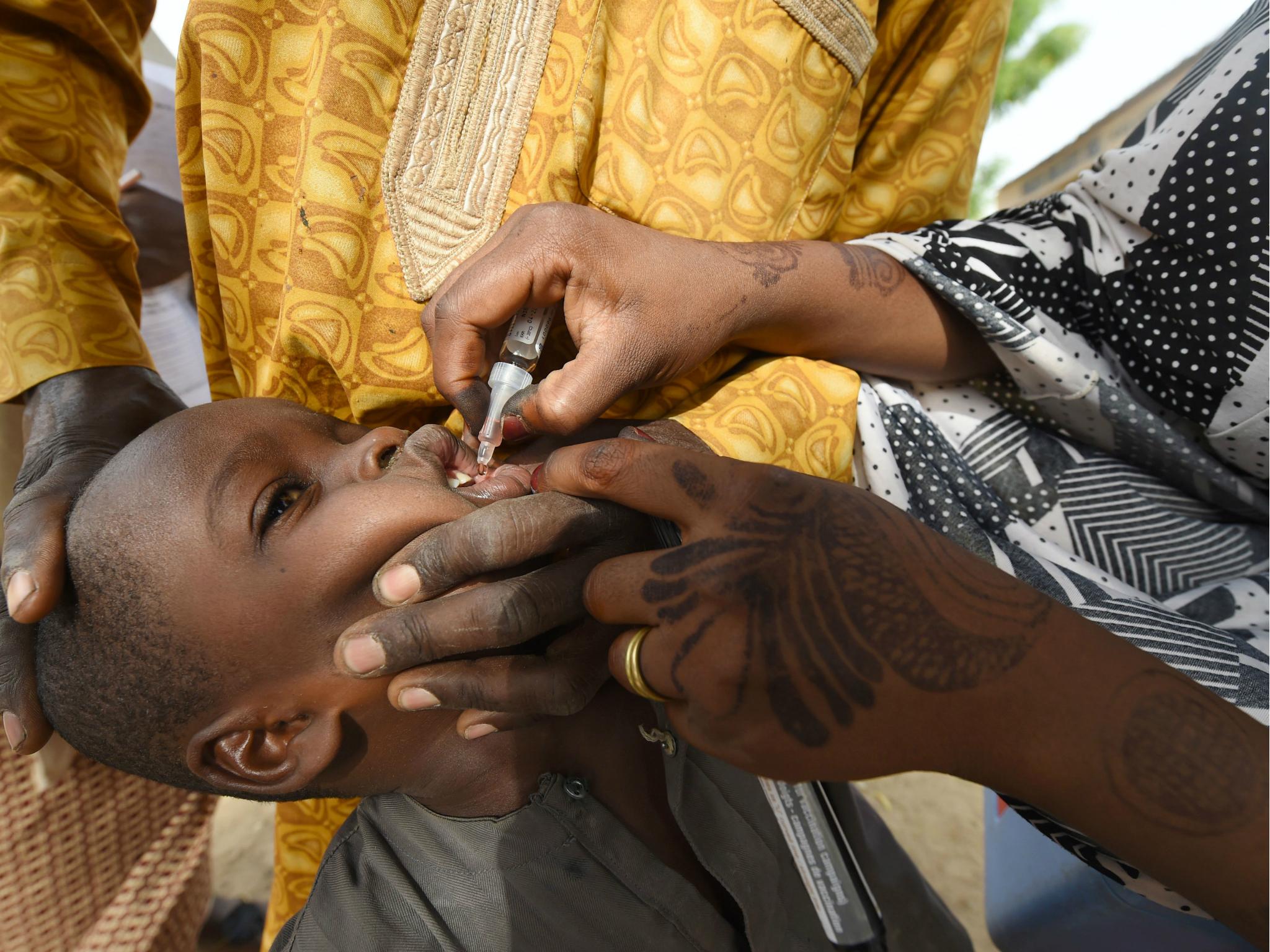Gates Foundation to pay $76 million of Nigeria's debt to help eradicate polio
The country already has one year without reported cases

Your support helps us to tell the story
From reproductive rights to climate change to Big Tech, The Independent is on the ground when the story is developing. Whether it's investigating the financials of Elon Musk's pro-Trump PAC or producing our latest documentary, 'The A Word', which shines a light on the American women fighting for reproductive rights, we know how important it is to parse out the facts from the messaging.
At such a critical moment in US history, we need reporters on the ground. Your donation allows us to keep sending journalists to speak to both sides of the story.
The Independent is trusted by Americans across the entire political spectrum. And unlike many other quality news outlets, we choose not to lock Americans out of our reporting and analysis with paywalls. We believe quality journalism should be available to everyone, paid for by those who can afford it.
Your support makes all the difference.Bill Gates’ charitable foundation has agreed to pay Nigeria’s debt to Japan so the African nation can become polio-free.
The Bill and Melinda Gates Foundation announced it will shoulder the $76m debt for Africa’s largest economy, which is recovering from its first recession in 20 years.
Nigeria originally took the loan in 2014 and payments are set to start this year and will be repaid over a 20-year period.
The loan was part of Overseas Development Assistance (ODA) provided by the Japanese government in 2014 for increased polio eradication efforts.
According to Quartz Africa, the Gates Foundation agreed to pay the loan on Nigeria’s behalf after the country “achiev[ed] more than 80% vaccination coverage in at least one round each year in very high risk areas across 80% of the country’s local government areas.”
Nigeria had completed a full year in 2017 without any reported polio cases.
However Paulin Basinga, Country Director Nigeria, Bill and Melinda Gates Foundation, told The Independent that the Gates Foundation is “pleased to repay the loan to the Government of Japan thanks to the strong leadership of the Nigerian government in polio eradication.”
However, Mr Basinga warned that though the country has not seen a polio case in over a year, there is an “ongoing risk” because the virus has not been completely eradicated.
Only six years ago, Nigeria accounted for nearly half of all polio cases so even if there are concerns it appears the country is progressing.
The country came close to a polio-free year in 2016 - there were no reported cases between mid-2014 and August 2016 - but then the World Health Organisation reported two cases in the remote and volatile northeast of the country, a region notoriously out of reach to medical professionals.
Polio eradication is one the Gates Foundation’s steadfast priorities, having helped India eradicate the disease nearly seven years ago. It even pledged to double-match funds of other charity groups like Rotary International meaning up to $450m could be raised in order to fight the virus.
There is no cure for the disease but it has been shown to not be able to survive in animals and can only live outside of humans for two months.
The key is widespread vaccination.
Join our commenting forum
Join thought-provoking conversations, follow other Independent readers and see their replies
Comments